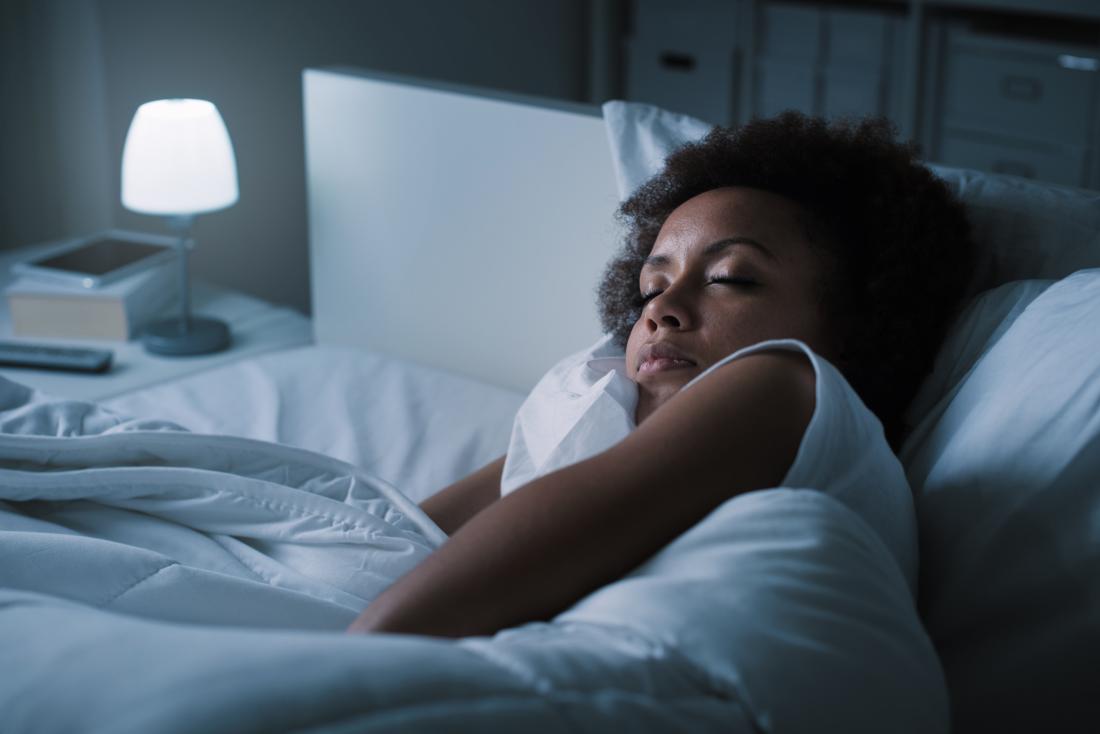Yet the newest study from the Centers for Disease Control and Prevention (CDC) finds that 34.8 percent of nearly 450,000 respondents reported getting less than seven hours of sleep each night. Lack of sleep, the CDC report points out, is linked to a host of ailments, including increased risk for obesity, diabetes, high blood pressure, coronary heart disease, stroke and more.
So how do we stop counting sheep and just float off to dreamland? Try these 10 steps.
Cool down
Keeping your room warm may make you feel cozy, but cooling things down is more likely to make you sleep better. “When you go to sleep, your set point for body temperature — the temperature your brain is trying to achieve — goes down,” H. Craig Heller, Ph.D., professor of biology at Stanford University, tells WebMD. “Think of it as the internal thermostat.” It’s easier for that to happen in a cooler room. Studies have shown that an ideal temperature lies somewhere between about 60 and 67 degrees Fahrenheit. Experiment by lowering your thermostat one degree a night to see what works best for you.
Eat healthy
Here’s yet another reason to eat better. A recent study published in the Journal of Clinical Sleep Medicine suggests that what you eat can influence how you sleep. Participants who ate more fiber spent more time in deep, slow-wave sleep. Those who ate a lot of saturated fat had less of that restorative sleep. Sugar intake was also linked to more episodes of being awakened from sleep. “Our main finding was that diet quality influenced sleep quality,” said principal investigator Marie-Pierre St-Onge, Ph.D., assistant professor in the department of medicine and Institute of Human Nutrition at Columbia University Medical Center. “It was most surprising that a single day of greater fat intake and lower fiber could influence sleep parameters.” It’s OK to have a little snack right around bedtime, especially if your stomach is growling, but make sure it’s something light and healthy.
Dim the lights
As you wind down for the evening, turn off the bright lights. More and more studies show that lights before bed can disrupt your sleep. Light at night suppresses the secretion of melatonin, the main hormone that controls the sleep-wake cycle. Turning off or dimming the lights earlier in the evening cranks up your melatonin production, helping you catch some ZZZs earlier. On that same note, keep your room dark when you go to bed. If your shades or curtains let in too much light, consider a sleep mask.
Sleep on schedule
It can be oh-so-tempting to go to bed late and sleep in on the weekends, but it will only throw your routine out of whack. Instead, try to go to bed at the same time and wake up around the same time every day. Being consistent reinforces your body’s sleep-wake cycle, says the Mayo Clinic, and keeps you on schedule to sleep.
Unplug
If you check your email and your favorite news sites up until the time your head hits the pillow, you’re hurting your chances of falling asleep easily. The artificial blue lightemitted by a cellphone, computer or tablet particularly messes with melatonin and impedes sleep. If you can bear it, turn off all electronics 30 minutes before bedtime.
Read a book
We’re talking about a real book or even a magazine. Just don’t fire up the electronic version because then you’re defeating the purpose and exposing yourself to that melatonin-blocking blue light. Snuggle up in a comfy chair, not in your bed, and read for a chapter or a few minutes or until you’re drowsy. It’s the same theory as reading to a little kid before bed. It’s a comforting routine and sends signals to your brain that reading equals bedtime.
Soak or shower
Taking a warm relaxing bath or shower can get your body psyched for sleep. Your temperature dips at night a couple hours before bedtime, dropping until about 5 a.m. A hot soak will raise your temperature and then the quick cool-down should help you relax. Two hours before bed, soak in the tub for 20 or 30 minutes, Joyce Walsleben, Ph.D., associate professor at New York University School of Medicine, suggests to Health. “If you raise your temperature a degree or two with a bath, the steeper drop at bedtime is more likely to put you in a deep sleep,” she says. A shower may not be quite as effective, but it can work too.
Wear socks
If cold feet are keeping you from falling asleep, or waking you up at night, slip on a pair of warm socks or tuck a heating pad or hot water bottle at your feet. Some studies have shown that the more vasodilation — the dilation of blood vessels — the more quickly you’ll fall asleep.
Keep a notepad by your bed
If you start going over the day’s events or tomorrow’s worries in your mind as soon as you go to bed, your brain will be way too busy to sleep. Instead, keep a pen and notebook by your bed and jot everything down before you sleep. Then you won’t have to worry about remembering things and you can clear your mind for rest.
Not sleeping? Get up
It may seem counterintuitive to get out of bed if you’re trying to sleep, but the American Academy of Sleep Medicine suggests that if you haven’t been able to fall asleep after 20 minutes, you should get out of bed. Try a quiet activity (no TV or checking email!) and don’t turn on the lights. When you start feeling drowsy, head back to bed.











 (Selorm) |
(Selorm) |  (Nana Kwesi)
(Nana Kwesi)